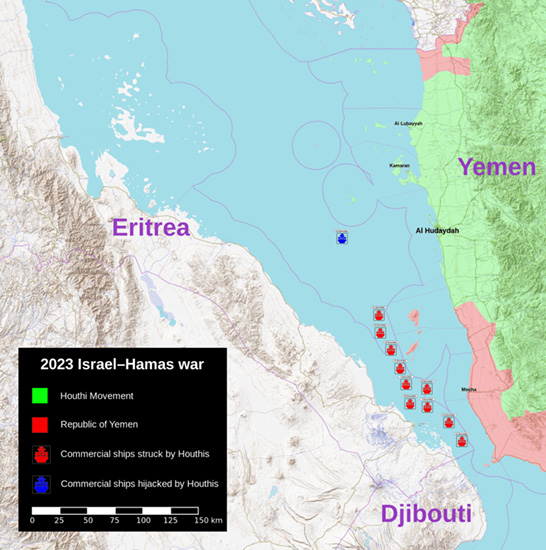 Pic.: Counter Punch
Pic.: Counter Punch
The Israel-Gaza conflict is invigorating a global protest movement against the state of Israel which is seeing various manifestations. From an economic standpoint, Israel can be seen as vulnerable in terms of global supply lines, potentially at the mercy of sanctions and complete isolation. Both imports and exports are of concern, notes Binoy Kampmark, a Commonwealth Scholar at Selwyn College, Cambridge.
Israel, however, has been spared any toothy sanctions regime over its conduct in Gaza. If anything, the Biden administration in Washington has been brightly enthusiastic in sending more shells to the Israeli Defence Forces, despite Congressional reservations and some grumbling within the Democratic Party. This has made such figures as Norwegian doctor Mads Gilbert, who has a long-standing association with the health system in Gaza, wonder why the wealthy states of the West exempt Israel from financial chastisement while economically punishing other powers, such as Russia, without reservation. “Where are the sanctions against the war crimes of Israel?” he asks. “Where are the sanctions against the occupation of Palestine? Where are the sanctions against these abhorrent attacks on civilian healthcare in Gaza?”
Israeli companies such as Elbit Systems have become specific targets of international protest. On December 21, a global coalition of groups under the umbrella of Progressive International took a day of action against the country’s largest arms company, drawing attention to the tentacular nature of the enterprise in the US, UK, Europe, Brazil and Australia.
Restricting the docking of Israeli shipping at ports, notably from ZIM Integrated Shipping Services, has also presented an opportunity to the protest movement. Actions have been organised as far afield as Australia where “Block the Boat” measures have taken place.
Short of these efforts, it is precisely the absence of responses at the highest levels that has precipitated a more global reaction that is upending the order of things. Beyond the protests of activists, community groups, and the more generally outraged come the more direct, state-sponsored measures that have rattled financiers, the carriers and the operators. The crisis in the Red Sea, for instance, where Yemen’s Iran-backed Houthi rebels (Ansar Allah), are putting the brakes on international shipping, is the stellar example. While the measure initially began on November 14 to target Israeli-affiliated merchant shipping, largescale operators have not been spared. “Unlike previous piracy related events in the Red Sea/Gulf of Aden this is a sophisticated military threat and requires a very sophisticated response,” states a briefing note from Inchcape Shipping Services.
The disruptions are significant, given that 30 percent of all container ship traffic passes through the Bab al-Mandab Strait off the coast of Yemen (map), the point where both the Red Sea and Indian Ocean meet. The actions and threats by the Houthis have seen various oil and gas companies reroute their tankers. Decisions are even being made to suspend shipping through that route in favour of the safer, though costlier and longer route via the Cape of Good Hope. Insurance premiums are also on the rise.
The Egyptians are also raising fees for those using the Suez Canal for the new year. In an October announcement, the SCA promised an increase of between 5-15%, effective from January 15, 2024. The measure is applicable to a fairly comprehensive list of vessel categories, including crude oil tankers, petroleum product tankers, liquefied petroleum gas carriers, containerships and cruise ships.
On December 20, Malaysia, as if heeding the “Block the Boat” protests, announced that it would be preventing Israeli-flagged cargo ships from docking at the country’s ports. Malaysian Prime Minister Anwar Ibrahim announced the decision in a statement, with a specific reference to ZIM. “The Malaysian government decided to block and disallow the Israeli-based shipping company ZIM from docking at any Malaysian port.” Such sanctions were “a response to Israel’s actions that ignore basic humanitarian principles and violate international law through the ongoing massacre and brutality against Palestinians.”
The Israel campaign against Gaza, and Palestinians more generally, is no longer a local, contained affair.
read more in our Telegram-channel https://t.me/The_International_Affairs

 10:06 07.01.2024 •
10:06 07.01.2024 •






















